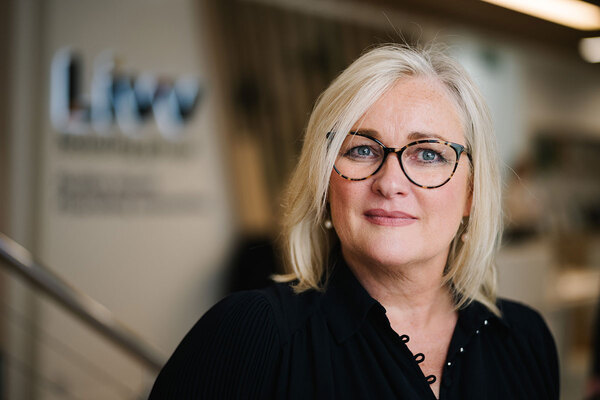Home Group increases liquidity by £260m in refinance that improves covenants
Home Group has increased its liquidity by £260m and improved its covenants after refinancing revolving credit facilities (RCFs) with three lenders and securing another RCF.

The housing association, which manages more than 56,000 homes in England and Scotland, increased its existing RCFs with Nationwide, Lloyds and HSBC by £50m each. Nationwide’s loan rose from £90m to £140m, Lloyds’ from £200m to £250m, and HSBC’s from £125m to £175m.
Home Group secured a new £110m RCF with Barclays, a new lender for the provider.
The loans with Lloyds and HSBC were previously, and will continue to be, sustainability-linked, with KPIs around numbers of new affordable homes delivered, energy improvements to existing stock and numbers of apprentices employed in the group. The interest rates and term lengths of the all of the loans were undisclosed.
As part of this financing exercise, Home Group said it has sought to “align and modernise financial covenants, spread refinancing risk, achieve competitive commercial terms, and secure options to extend the facilities in future”. The funding will be used to invest in new and existing homes.
“We’re really pleased with the outcome,” Steve Hallowell, director of treasury and investor relations at Home Group, told Social Housing.
“We’re very pleased with the commercials and the other terms we managed to renegotiate through this process and now we have a very strong pool of core lenders that we’ll work with going forward, which is a good place to be,” he added.
Thomas Archer, a director at Centrus, which advised Home Group on the deal, told Social Housing: “It was a very supportive reaction from the banks across the board, there was a lot of demand.
“Some of the pricing was very competitive, as strong as we’ve seen on recent deals.”
Improved covenants
Mr Hallowell said Home Group has improved its covenants in the refinance with the removal of EBITDA-MRI in a few of the agreements, and moving to EBITDA-only instead, as well as “modernising” the gearing covenants. The new RCF with Barclays was EBITDA-only too.
Mr Hallowell said the gearing covenants have moved from a “slightly old and quirky calculation” to a more standardised debt-to-housing properties ratio in terms of gearing, which gives “greater headroom”.
He added that Home Group has also negotiated “some harmonisation” in terms of on-lending.
“We had a range of different agreements in place in terms of how we calculate our capacity to on-lend, and we’ve standardised that where we can,” he said.
Mr Hallowell added that Home Group has also reduced refinancing risk by ensuring the loans have different term lengths and a range of extension options to make sure they do not mature around the same time and to give flexibility in extending funding.
Investment in new and existing homes
The group will use the refinance to help meet its funding requirements for new and existing homes set out in its business plan.
Home Group’s current five-year business plan from April 2024 targets building around 6,000 homes, at a cost of almost £1bn, and investing £450m in existing homes, including improvements to properties and decarbonisation.
The housing association is now working on its next business plan. This will run from April 2025 to March 2030 and will be taken to its board for approval in June. However, Mr Hallowell added that he does not believe the new plan will be “fundamentally different in terms of the shape of investment in existing and new homes”.
“I think the funding is largely maintaining the current rate of investment,” he said.
“We reduced our development ambition a couple of years ago in the face of the financial challenges the sector was facing and the economy, but we’ve still got that programme of about 1,200 homes a year.
“That’s our current plan, but we’re refreshing the business plan at the moment.”
Funding strategy
Mr Hallowell said the financing exercise follows a review of Home Group’s treasury strategy, approved by the board in November.
He said the strategy at this point focuses on increasing the pool of RCFs available to support the housing association’s investment ambitions.
Mr Hallowell said that the refinance was in line with the group’s strategy and business plan and Home Group opted for RCFs over other funding avenues because of the flexibility they offer to repay and draw down.
“We knew that we needed to do some fundraising, so we looked at the existing facilities, their debt, pricing, covenants, term and the fixed:floating split,” he said.
“We then looked at the liquidity needs that the plan suggested. It’s based on our golden rule, and we know S&P place value in terms of having a strong liquidity value and the regulator expects you to be pretty liquid.
“And then putting all of those things in the mix, we looked at the sort of products that were available in the market, looked at market conditions, and we came to the conclusion that we wanted to increase our overall RCF pool to over half a billion and that was the right thing to do at this time.”
Keeping funding options open going forward
Mr Hallowell said that Home Group is not currently planning on raising new funding soon, unless there is something new in the business plan to react to. However currently the group is expecting similar levels of investment in new and existing homes in the plan.
Mr Hallowell said that the banks involved in this funding deal “probably still have some appetite” to do some more lending, and Home Group will maintain relationships with a “sensible core group of lenders”.
He added that there were lenders Home Group did not choose to partner with in this funding exercise that “remain keen” and would be “happy to come back to the table” for further financing in the future. It is therefore important for the landlord to “keep those relationships alive” as it moves forward as well, Mr Hallowell said.
“We keep active conversations going with anybody that might be interested in lending to us in the future, because you never quite know where your next funding exercise might take you,” he said.
“So, we try to keep in touch with and have good relationships with a wide pool of possible funders.”
Capital markets
Mr Hallowell said that Home Group expects to return to the capital markets for longer-dated funding in future to repay drawn facilities and refinance some of its shorter-dated funding.
He estimates that the group will access the capital markets in the next 18 to 24 months and that this will also be influenced by the landlord’s new business plan.
“I think our long-term strategy is – assuming capital markets conditions are acceptable – we’ll access capital markets periodically, and in the intervening period we’ll use RCFs to draw down, so you have a fairly substantial pool of RCFs, draw that down, then get into a routine of accessing the capital markets to repay those RCFs and almost get into a cycle of funding in that way,” Mr Hallowell said.
Affordable Homes Guarantee Scheme and National Wealth Fund
Mr Hallowell said Home Group has an “ongoing dialogue” with Venn about the Affordable Homes Guarantee Scheme (AHGS), which the latter manages. The landlord also has relationships with some of the funding institutions putting products forward with the National Wealth Fund (NWF).
For example, Lloyds and Barclays participated in this latest funding exercise and are also both providing retrofit loans backed by government guarantees from the NWF.
“We’ve got all of those in the mix, and then we’ll think about those as part of our next funding exercise,” Mr Hallowell said.
“This latest transaction [with the four banks] deals with what we see as our medium-term funding needs. But we’ll keep the conversations going with AHGS and Venn and with the banks that have got those retrofit products out there.
“There may be a role for those in our funding stack in the future. So, we’ll certainly keep talking to them and keep considering them, and I guess reassess when we’ve got a new business plan.”
Centrus advised Home Group on the refinance and Devonshires provided legal support, while Pinsent Masons worked as the funders’ lawyers.
Sign up for Social Housing’s weekly news bulletin
Social Housing’s weekly news bulletin delivers the latest news and insight across finance and funding, regulation and governance, policy and strategy, straight to your inbox. Meanwhile, news alerts bring you the biggest stories as they land.
Already have an account? Click here to manage your newsletters.
RELATED







